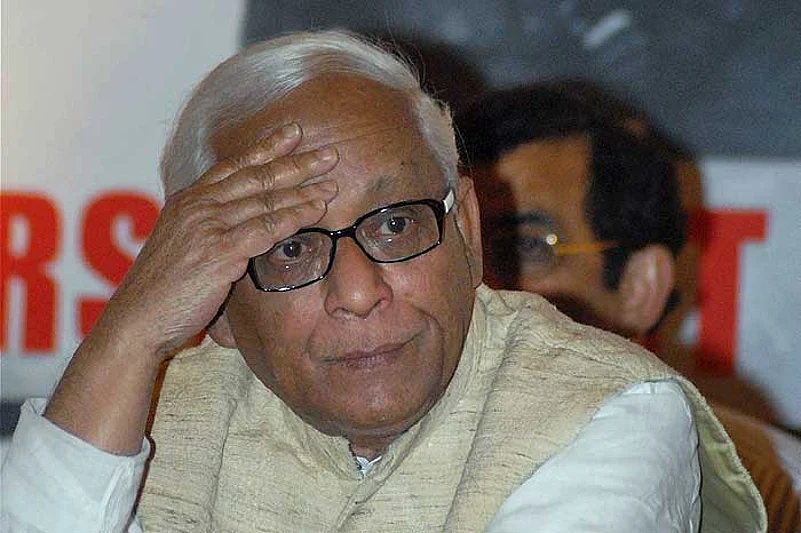Burden Of Debt...
- W. Bengal’s fiscal deficit in 2009-10 is Rs 1,37,629 cr; the revenue income only Rs 36,000 cr.
- Much of the expenditure is on salaries etc, not on development
- In June-July this year, the state raised Rs 2,000 cr through bonds
- In July, it signed a Rs 920 cr loan deal with the World Bank
- In 2005, it obtained a five-year grant of Rs 750 cr from the UK government’s Department for International Development
- It has also borrowed from ADB, NABARD and other institutions
***
If the Trinamool Congress is voted to power in West Bengal in the forthcoming assembly elections, less than a year away, it will inherit a state that economists say is a financial mess. “Not only is the state neck-deep in debt,” says Abhirup Sarkar, an economist and professor at the Indian Statistical Institute, Calcutta, “it’s bankrupt.”
Indeed, the latest estimate—based on actual expenditure and earnings in the fiscal year 2009-10—puts the deficit at Rs 1,37,629 crore, while the income is only Rs 36,000 crore. “In simple terms, this means a huge discrepancy between the expenditure and the income, with the income of the government being significantly less,” says Sarkar.
To bridge the gap, the state fell into a vicious debt trap, borrowing heavily from the public, financial institutions and the Centre. In the 33 years the Left Front has been in power, it has taken loans year after year to meet expenditure. It has also had to borrow to pay off the loans and the accruing interest.
In fact, while presenting the budget for 2008-09 for West Bengal, state finance minister Asim Dasgupta had admitted to a “serious deterioration in the financial position of the state government” and pointed out that there had been a steady “increase” in the ratio of revenue deficit to revenue receipt.
The question being asked, however, is: Where was the West Bengal government spending so much money as to justify the borrowing of such a lot of money from various sources over the years? The question is pertinent because financial experts point out that when there is expenditure on development, the state’s income usually rises. The reason the government was spending but not earning is because its primary expenditure was not in the area of capital expenditure—that is, expenditure for development work, such as building roads and industry—but on revenue expenditure, that is, paying salaries to state government employees, pensions, provident fund contributions and so forth.
“The basis of the common accusation against the CPI(M)-led government is its broadening of its cadre base by employing and paying salaries to hundreds of people to work for the party,” an economic analyst told Outlook on condition of anonymity. “This was the party’s strategy for winning elections.”
The borrowing continues: as recently as June-July 2010, Rs 2,000 crore was raised from the public through bonds. The state government is also in a hurry to have a bill passed in the assembly to clear off all dues and bridge the fiscal deficit in a stipulated period of time. The bill, called the West Bengal Fiscal Responsibility & Budget Management Bill, 2010, proposes “to provide for the responsibility of the state government to ensure prudence in fiscal management and fiscal stability by progressive elimination of revenue deficit.”
Crying foul play, Partha Chatterjee of the Trinamool Congress says, “Now that the state government knows what the outcome of the assembly elections is going to be, it is trying to put the onus of repayment of the loans on the next government.” Legal experts point out that if indeed a government is faced with such a situation, a state of “financial emergency” can be constitutionally declared and the Centre can take over the state’s financial activities. Dasgupta refused to comment, saying the assembly was in session until July 29.


























